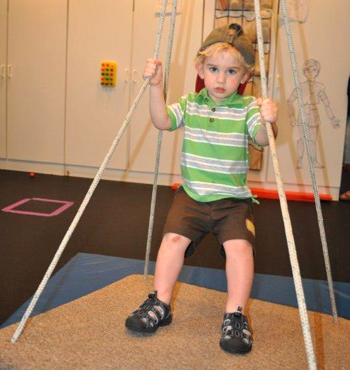
|
Pediatric Occupational, Physical, ABA/Behavioral, Feeding, Speech, and Language Therapies Main Clinic: 931-372-2567 1445 East 10th Street Cookeville, TN 38501 Email: [email protected] HIPAA Secure Email: [email protected] Fax: (931) 372-2572 ABA Clinic: 931-201-9534 400 Dubois Road Cookeville, TN 38501 Email: [email protected] Please call today to get started! Most insurances accepted! |

|
| Who needs therapy? | SE HABLA ESPAÑOL |
Classroom Management Strategies for Children with Auditory Processing Disorders
- Seek classroom placement to avoid settings that are noisy or reverberant and avoid open classroom placements;
- Provide the child preferential seating near the place where the teacher spends most of his/her time giving auditory instructions, and away from distracting auditory and visual "noise;"
- Teach the child to use visual information (look and listen);
- Encourage teachers to gain the child’s attention before giving auditory instruction; FM Systems are wonderful.
- Check the child’s comprehension of auditory information by asking a child to re-tell the instruction;
- Rephrase and restate important information to provide auditory redundancy;
- Counsel teachers and parents regarding the child’s auditory needs;
- Use FM systems if recommended by the audiologist to enhance the speech to noise ratio for the child;
- Teach compensatory strategies depending on the child’s individual needs;
- Teach listening skills, including when to listen for meaning rather than exact repetition. Teach the child to wait until instructions are completed before he/she begins a task;
- Give the child time to think and respond to auditory instructions or questions;
- Use attention devices such as calling the child’s name, saying "listen" and "Are you ready?" before giving assignments;
- Limit the amount of information in each instruction;
- Provide in-services to help teachers and parents understand auditory processing problems;
- Allow a "buddy system" that the child can use to check homework assignments or other instructions;
- Consider the use of tape recorders for some children who need a repetition of directions, spelling words, or lectures;
- Ask teachers to provide pre-printed lecture notes or outlines to minimize the need to listen and write or take notes. This allows the child to listen while watching the teacher and taking advantage of all visual cues.
Any remediation program should be directed not only at arranging for the management of the child but also should recognize the child’s responsibility in his/her own remediation. When the child learns to take care of his/her own needs through better organization, asking for repetition, double checking assignments, and other self-help behaviors, he/she will experience more academic success and develop a better self-image.
Site empowered by
WebOnTheFly